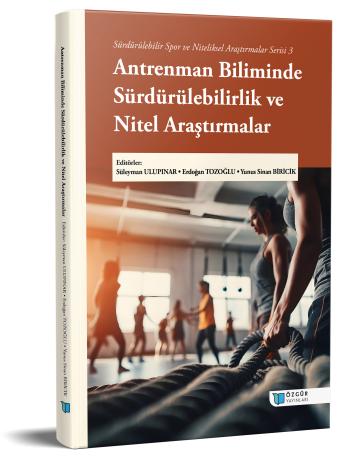
Sporda Fizyolojik Adaptasyonların Sürdürülebilirliği: Dayanıklılık ve Kuvvet Gelişimi
Şu kitabın bölümü:
Ulupınar,
S.
&
Tozoğlu,
E.
&
Biricik,
Y.
S.
(eds.)
2024.
Antrenman Biliminde Sürdürülebilirlik ve Nitel Araştırmalar.
Özet
Sürdürülebilir fizyolojik adaptasyonlar, sporcuların performanslarının uzun vadede korunması, geliştirilmesi ve sakatlık risklerinin azaltılması açısından son derece önemlidir. Bu adaptasyonların elde edilmesi için antrenman programlarının bilimsel bir yaklaşımla planlanması, antrenman dönemlemesinin stratejik olarak uygulanması, beslenme ve toparlanma süreçlerinin optimize edilmesi gereklidir. Teknolojik gelişmelerin spora entegrasyonu, adaptasyon süreçlerinin verimli bir şekilde yönetilmesini sağlayarak, sporcuların performans verilerinin gerçek zamanlı olarak takip edilmesine olanak tanır. Giyilebilir teknolojiler, yapay zeka destekli antrenman programları ve sanal gerçeklik gibi yenilikçi yaklaşımlar, sporcuların fizyolojik ve teknik gelişimlerini desteklerken, aşırı yüklenmenin önlenmesine ve antrenmanların bireyselleştirilmesine katkı sağlar. Biyofeedback ve adaptif antrenman teknikleri, sporcuların antrenman sırasındaki fizyolojik tepkilerini anında izleyerek, antrenman yoğunluğunu ve yüklenmesini doğru bir şekilde ayarlamalarına yardımcı olur. Bu yaklaşımların bir arada kullanılması, sporcuların fizyolojik adaptasyonlarının sürdürülebilirliğini artırır ve performanslarını uzun vadede en üst seviyede sürdürmelerine olanak tanır.

